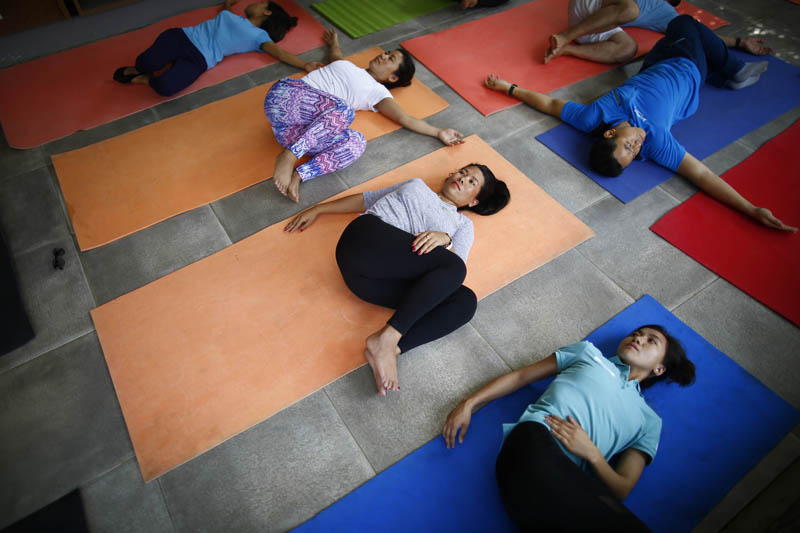Don’t let your back suffer in lockdown
The lockdown due to Covid-19 pandemic has constrained people in their homes forcing them to spend most of their time with gadgets whether for work or entertainment. This has created difficulty in staying physically active and maintaining good posture.
Incorrect posture may cause various health problems. While performing various work people sit on uncomfortable chairs/sofa for a long time which is a leading cause of pain in back, neck and shoulder. Sitting in a hunched or slouched position for prolonged time causes poor circulation and cardiopulmonary complications. Incorrect posture may lead to pain, muscular tightness and deformities.
‘Corporate illness’ caused by a bad posture is better be prevented than cured.
How to avoid bad posture and posture related problems:
- Improve your posture (ergonomics)
Ergonomics is the process of designing or arranging the workplace, products and systems to minimize physical discomfort and increase efficient interaction between people and things. Reduced activities and incorrect posture while working from home make us prone to various bad posture related illnesses. A proper working environment can be ensured by following these steps.
- Be alert of your posture while sitting, standing or changing the position.
- Avoid sitting in slouch position
- Place a pillow or towel roll behind lower back while sitting
- Don't bend your upper back while using gadgets
- Keep your feet elevated on a low stool to relieve pressure from back during prolonged sitting
- Switch positions periodically
- Avoid excessive bed rest
During free time, our first instinct may be to lie on bed or sit, which may cause tightness of muscle and also decrease the strength gradually. Counterintuitively, people with mechanical back pain mostly prefer bed rest. Instead, their condition can improve with mobility than rest the same way a pregnant woman is advised to avoid excessive bed rest as it may increase complications in delivery due to weakening of muscle strength.
- Get active
Involvement in household chores can help improve physical and mental health as they can increase physical activities and sense of purpose.
- Eat healthy
With not much to do during the lockdown we are more tempted towards food than usual and may consume both healthy and unhealthy food while consuming more than required in itself can be problematic. Excess weight around the midsection can be specially strenuous for the lower back.
To keep the weight in balance, food that should not be consumed in excess include
- Sugary drinks
- Snacks
- Baked food
- High fat dairy products
- Fried food
- Constant takeouts from restaurant
And, some food to incorporate often in regular meals include
- Fruits
- Vegetable
- Healthy cooking oil
- Beans and cereals
Adequate water is equally important to maintain good health.
- Exercise
It is important to maintain flexibility and strength of body. Stretching and strengthening exercises are very helpful and should be done daily. Back is a core part of our body which should be strong and flexible enough to perform tasks in our daily life. If you have been experiencing pain in your back, neck or shoulder, you have to do specific types of exercises for each part as suggested by a physiotherapist.
- Heat or ice therapy
In muscular pain, heat therapy can be applied to relax muscular tissue and relieve pain. In contrast, ice therapy should be applied in acute injuries, inflammatory conditions, soft tissue injuries, open injuries etc. It is highly advised to be CAUTIOUS of where heat or ice therapy should be applied in a particular condition.
Please visit a specialist in case of severe pain in back, neck or shoulder, weakness in hands and legs, pain affecting sleep, fever and chills, numbness of hands and legs.
Your back is your friend which if agitated might ruin the entire lockdown. You can support it by choosing proper posture, regular exercise and a healthy diet.
Dr. Rabindra Basnet is a head of department at Physiotherapy department in HAMS Hospital, Kathmandu.






